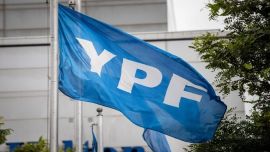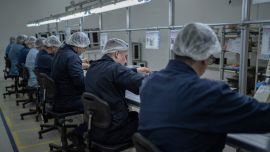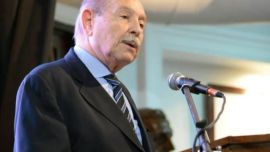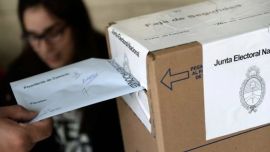Military coups might seem to belong to an even more distant past than the 46 years elapsing between the 1976 junta takeover and last Thursday’s commemoration of it but unfortunately the same cannot be said about government crisis or even collapse – an all too present danger. Most of the attention here has centred on a tension between the presidential and vice-presidential wings of the ruling coalition still lying in a twilight zone between war and peace. Some analysts see a new truce on the horizon, with or without a realignment of forces – either President Alberto Fernández capitulating yet again to last Thursday’s impressive show of force under the banners of La Cámpora militants or because the electoral self-interest of unity remains the common denominator. Yet if the Thursday march does indeed prove to be the catalyst for closing coalition rifts, it also breeds new contradictions – it could never have been so massive without the same Greater Buenos Aires mayors who ensured the approval of the agreement with the International Monetary Fund (IMF) giving the La Cámpora opponents of that agreement a new clout.
The manoeuvres at the helm of Frente de Todos might steal the limelight while military coups can be safely consigned to the past but other memories evoked by the 1976 anniversary are uncomfortably close – and not just divisions within a ruling Peronism then and now. A more recent memory takes us back to the preceding Mauricio Macri administration at the same stage in its third autumn in 2018 – the balance of payments crisis leading to that IMF stand-by loan whose rescheduling is now such a bone of contention began in April of that year with the Alberto Fernández presidency now facing similar fiscal and monetary fragility. Macri did at least make it to the end of his term (also to the credit of his successor who could have decided otherwise, it should be said) and hopefully the same will happen now but is there any guarantee with supporters of Vice-President Cristina Fernández de Kirchner among the loudest voices forecasting the direst scenario?
The last time an elected presidency was interrupted (and indeed the only time since 1976 if we leave out Raúl Alfonsín advancing the transfer of power by five months in 1989) was in late 2001 with the following year suffering an even worse slump than the pandemic year of 2020. Not an outcome to be contemplated frivolously and no serious newspaper should be even raising that alarming possibility were it not for the fact that such talk seems to stem more from government divisions than opposition irresponsibility. Nor can such talk be dismissed as purely malicious since the potential dangers are not only real but could be put to the test very soon – concretely this winter with the higher fuel import prices triggered by the war in Ukraine far outweighing foreign currency reserves, thus presenting the government with a tough choice between antagonising the electorate and strangling economic growth.
The preparation of alternatives could begin now. Back in 2001 the power vacuum was filled by serving or former Peronist governors (firstly five-term San Luis Governor Adolfo Rodríguez Saá, soon followed by the former two-term Buenos Aires Province governor Eduardo Duhalde as caretaker and ultimately by three-term Santa Cruz Governor Néstor Kirchner) but history need not repeat itself – federalism has its virtues but multiple options would be welcome.
Last but far from least, all the political jockeying, shows of force and crisis scenarios should not distract us from what Memory Day is all about – something largely forgotten by last Thursday’s participants – namely, the anniversary of a coup by a military dictatorship which, its self-destructive tendencies aside, was ultimately defeated not by armed resistance but by the defence of human rights in a “Never again” spirit.


















Comments